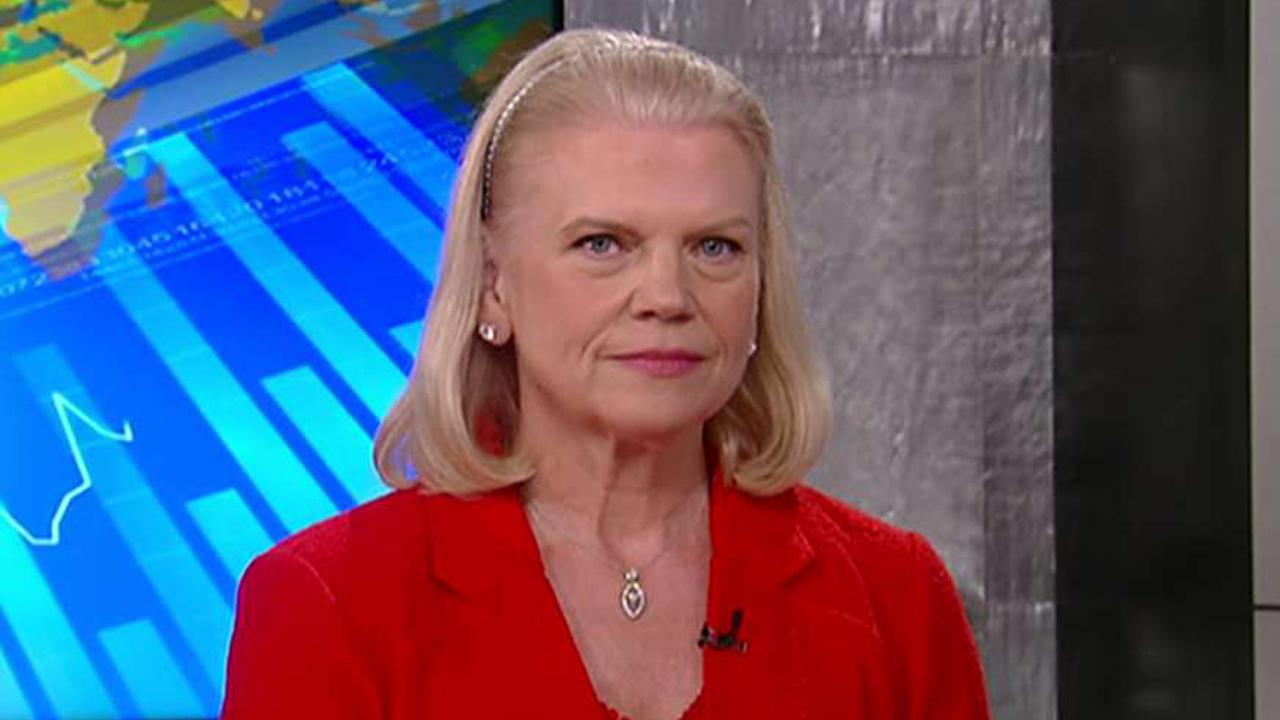IBM CEO Rometty Says a Lower Tax Rate, Territorial Tax System Will Enable Growth
IBM President and CEO Ginni Rometty said Sunday that America needs a revamp of its tax system, particularly the corporate rate, in order to improve growth and make the country more competitive.
“I’m very pleased to see the broad sort of pillars of this tax proposal put out,” Rometty said of President Trump’s plan during an interview with Maria Bartiromo on “Sunday Morning Futures.”
Rometty said two parts of the president’s plan, which was rolled out Wednesday, will help IBM: the corporate tax rate, which Trump wants to lower to 15 percent from 35 percent, and a territorial tax system.
“This territorial system—that’s a modern, international tax system that allows you to move your profits around,” she explained. “If you have those two tenets in a good spot that make America competitive, that enable growth and that will also spur investment, I think you’ve got a good plan.”
Some companies have moved their headquarters overseas largely due to the heavy burden of taxes imposed by the U.S. government. For example, in 2014, fast food chain Burger King merged with Canada’s Tim Horton’s, another fast food chain known for their coffee and donuts, for more than $11 billion and created a joint company called Restaurant Brands International. RBI is headquartered north of the border, where Canada’s federal corporate tax rate is 26.5 percent.
Assuming the Trump administration follows through with its plan to reduce the corporate tax rate, Rometty said companies could start bringing money back from overseas.
“If you make America one of the most competitive places, that’s where the money will come. It’s really quite clear—there isn’t a mystery about that. So that’s why I think this is going to be good,” she said.
Bringing back jobs to America has also been a primary goal of Trump’s presidency thus far. Rometty said there are millions of jobs available in the U.S., both in the tech industry and others, but Americans don’t have “contemporary skills” to fill the vacancies.
“This has been one of the biggest areas—workforce development—that we feel strongly,” she said. “I’ve dedicated a lot of time with the administration. They’re very open to this and to helping on this. I think it is public-private that has to happen to fix education. We have a chance, I think, to fundamentally change the face of skills in our country now.”




















